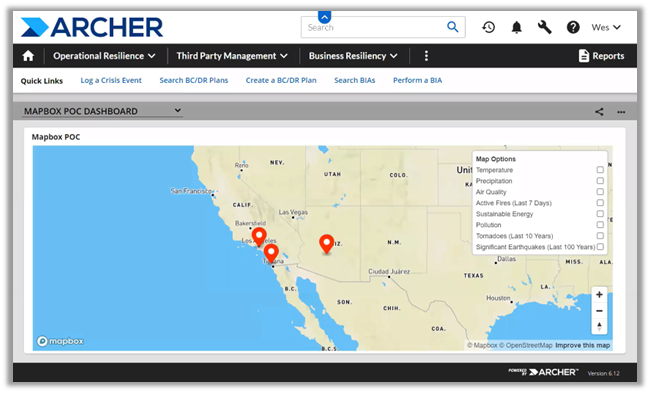Mitigating Supply Chain Risks: The Power of Effective Third-Party Risk Management
- Archer
- Jun 14, 2023
- 2 min read

Supply chain risk management has become increasingly critical in today's interconnected and complex business environment. Organizations rely heavily on third-party products and services, which introduces a new layer of risk that must be proactively managed. Failure to address these risks can lead to supply chain disruptions, compromised data security, and reputational damage. To enhance resilience and minimize vulnerabilities, organizations need to integrate third-party risk management into their overall supply chain risk management practices.
Understanding the Importance of Third-Party Risk Management
Managing third-party risks requires a comprehensive and systematic approach. It involves conducting due diligence on potential partners, assessing their risk profiles, and ensuring they have robust strategies and controls in place to prevent and mitigate risks. Clear contractual agreements should be established, outlining expectations for risk management, and specifying mechanisms for monitoring and addressing emerging risks.
The Four Key Supply Chain Risks:
Cyberattacks: Cyber risk management is crucial, considering the increasing prevalence of cyber threats. Organizations must develop strong partnerships with suppliers that have robust strategies to prevent loss or restore services promptly. Rigorous due diligence, regular assessments, and clear contractual agreements are essential for mitigating cyber risks.
Natural Disasters: Natural disasters can cause widespread disruptions, impacting multiple suppliers in a specific region. Organizations should adopt a supply chain-based approach and consider backup capabilities and alternative suppliers in different parts of the world to reduce vulnerability caused by disruptions.
Rising Consumer Demand/Material Scarcity: Managing increased consumer demand and material scarcity requires data-driven approaches. Leveraging technology and predictive analytics allows organizations to make informed decisions regarding inventory management, anticipate potential scarcities, and optimize supply chain operations accordingly.
Increasing Freight Prices/Inflation/Economic Conditions: Collaboration within the supply chain network and leveraging technology play vital roles in managing risks associated with economic conditions. By actively engaging with suppliers, monitoring risks, and utilizing advanced analytics tools, organizations can optimize operations, reduce costs, and adapt to the evolving economic landscape.
To learn more about how to mitigate supply chain risks through effective third-party risk management, read our eBook "Mitigating Supply Chain Risks: The Power of Effective Third-Party Risk Management."



Comments